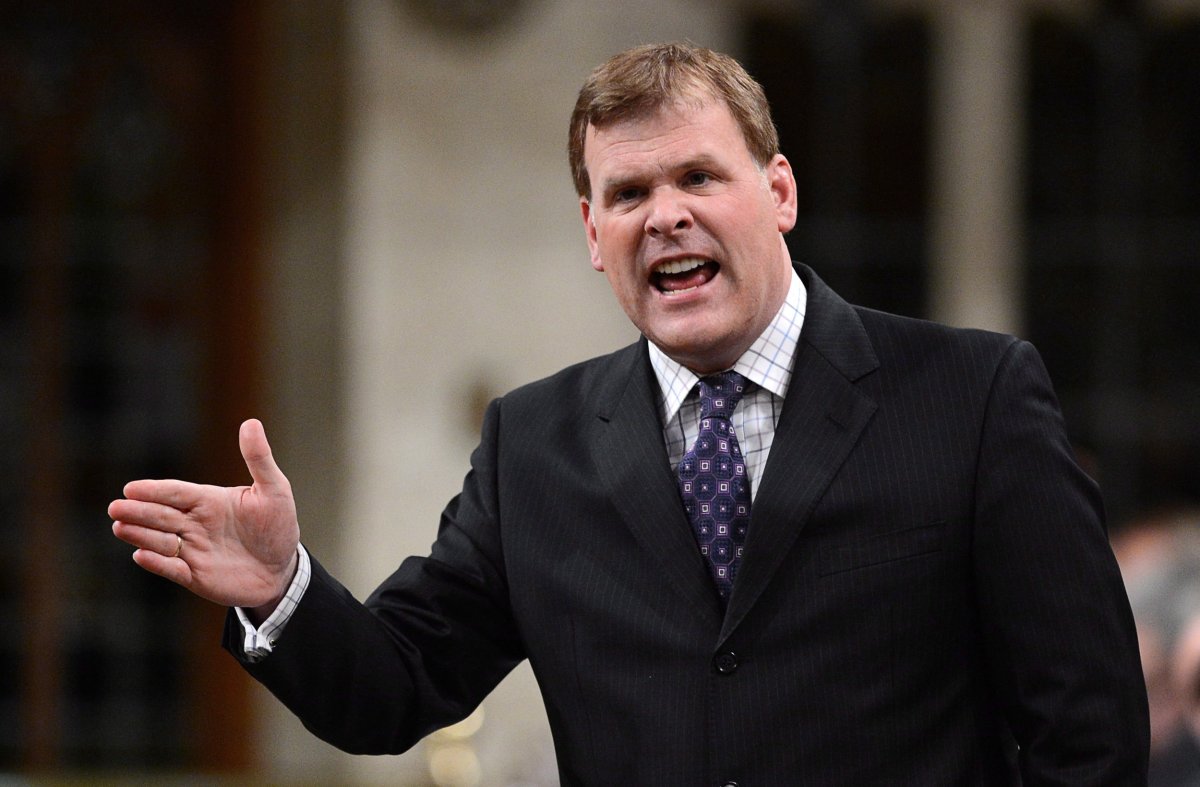OTTAWA – Foreign Affairs Minister John Baird denounced Russia’s controversial new anti-gay law as hateful Thursday, saying it could incite violence.

In an exclusive interview with The Canadian Press, Baird described how Canada has worked behind the scenes to persuade Russia not to follow through with the law.
Baird outlined the details of eight meetings, dating back to January, during which Canadian officials pushed the issue with the Russians, before and after President Vladimir Putin signed the controversial bill into law in June.
Baird said he is deeply concerned about Thursday’s comments by Russia’s sports minister that the new law will be enforced during the 2014 Winter Olympics in Sochi.
“As concerned as we are about the Olympics, that’s nothing. That’s two, three, four weeks for the athletes and participants and the visitors,” Baird said in a telephone interview from Colombia.
“This mean-spirited and hateful law will affect all Russians 365 days of the year, every year. It is an incitement to intolerance, which breeds hate. And intolerance and hate breed violence.”
Baird said he is aware of hate crimes against gays in Russia and of Internet luring and violence in recent days and weeks.
The minister said Canada will work with like-minded countries such as the United States and the United Kingdom to pressure the Russian government to change the law ahead of the Olympics.
The law imposes fines for spreading information about gay choices to minors, and it bans gay pride rallies.
- Trudeau says ‘good luck’ to Saskatchewan premier in carbon price spat
- Canadians more likely to eat food past best-before date. What are the risks?
- Hundreds mourn 16-year-old Halifax homicide victim: ‘The youth are feeling it’
- Vacation death: Cuba apologizes after Canadian family receives wrong remains
It has also sparked calls for boycotts of the Olympics and of Russian vodka.
Baird did not endorse the calls for a boycott but said Russia’s hosting of the Olympics would draw attention to the issue.
“In the run-up to the Olympics, it provides a spotlight on this mean-spirited and hateful law,” Baird said.
“Hopefully, we can use that spotlight to bring pressure to bear on the Russian government.”
Earlier Thursday, Russia’s sports minister, Vitaly Mutko, said the law would be enforced against athletes and visitors to Russia during next year’s winter games.
Mutko told R-Sport, the sports newswire of state news agency RIA Novosti, that “an athlete of non-traditional sexual orientation” would not be banned from the games.
“But if he goes out into the streets and starts to propagandize, then of course he will be held accountable.”
Baird said Mutko’s comments appeared to have “pushed aside” earlier assurances the International Olympic Committee received from Russian officials that athletes and other visitors would not be subjected to the new law.
“We wanted more than a verbal commitment to the IOC. And now the comments by the Russian sports minister, Vitaly Mutko, are of deep concern,” Baird said.
“The Olympics is a great celebration of international sport, of international co-operation. This type of law being enforced flies in the face of the entire Olympic spirit.”
Baird said the Canadian embassy in Moscow first raised the matter with the Russian foreign ministry on Jan. 29, four days after the bill was introduced. The Canadian ambassador held a follow-up meeting with Russia’s deputy foreign minister two weeks later.
Between Feb. 28 and July 19, Baird said, officials from the Foreign Affairs Department met on five occasions with the Russian embassy in Ottawa. On Thursday, Baird said Canada registered its concern again.
“We’ve been working hard behind the scenes, and obviously we’re deeply disturbed, deeply concerned about President Putin signing this bill into law.”
Baird has spoken out in the past about the discrimination and violence against gays. He has singled out Canada’s fellow Commonwealth member country, Uganda, which has its own anti-gay law.
But Baird said he was advised that speaking out publicly against Russia might backfire.
“We tried to accept the advice and counsel of human rights groups, gay rights activists to temper our remarks before things become law and to work behind the scenes quietly,” the minister said.
“You’ll recall I’ve been criticized on the case with respect to Uganda that I’ve been too vocal, even when I just raised violence against gays in Uganda, I didn’t even raise the bill. It was seen as a victory for the proponents of the bill.”
Baird described how he saw the roots of the issue take hold during a meeting of G8 foreign ministers in May 2012.
“I can recall being in Washington when (then U.S. secretary of state) Hillary Clinton was chairing the G8 foreign ministers meeting and we put, as part of our statement, support for sexual minorities. Russia put an asterisk beside it saying they were not on board,” he said.
“This did not just pop out of nowhere.”
Baird said he planned to raise the matter with his counterpart, Sergey Lavrov, on the margins of the United Nations General Assembly next month in New York.
Prime Minister Stephen Harper butted heads with Putin ahead of this year’s G8 summit in Northern Ireland over Russia’s continued support of the Syrian regime of Bashar Assad. He characterized Russia as the outlier of the G8.
Harper will be in Putin’s hometown of St. Petersburg for next month’s G20 summit. His office had no immediate comment on whether he would raise the issue with Putin.
Earlier this week, the NDP’s sports critic Matthew Dube urged Baird “to act promptly to fight anti-gay repression in Russia.”

Comments